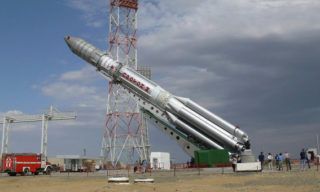The date of the debut commercial flight under the Polaris programme has become known. According to project representatives, the expedition called Polaris Dawn will start on 31 July. As part of it, the manned spacecraft Crew Dragon company SpaceX will go into space with four tourists, two of whom will make a spacewalk – it will be the first-ever extravehicular activity involving non-professional astronauts.
Information about the new launch date of the Polaris Dawn expedition appeared on the official page of the project in the social network X (former Twitter). Meanwhile, neither Jared Isaacman, who finances the flight and is the commander of the crew of Polaris Dawn, nor Elon Musk, whose company SpaceX will provide the ship Crew Dragon and rocket Falcon 9, has not yet made statements on this matter.
Until recently, the start of the Polaris Dawn expedition has been regularly postponed: initially, it was planned to be carried out in late 2022, but due to various delays in the development of the project, the date was shifted first to April 2024, and then – in the summer without any specifics. In early June, it was reported that the launch of Polaris Dawn was tentatively scheduled for 13 July, but now it has become known that it will be held no earlier than 31 July.
The main problem that led to the failure to meet the deadline was the unpreparedness of spacesuits for tourists entering outer space. They were to be created by SpaceX based on already existing spacesuits for intra-vessel activity (IVA) – which are used by astronauts during Crew Dragon flights. However, engineers had to make major design changes to make them suitable for extravehicular activity (EVA).
In January, observers noticed that SpaceX was not delivering the new spacesuits in time for the Polaris Dawn flight in April. In their opinion, specialists underestimated the labor intensity of this process. As Elon Musk noted on this occasion, it was necessary to rework the design of existing special suits so that they could move freely. As a result, the spacesuits for Polaris Dawn were officially presented only in May 2024. Especially for them, engineers improved the design of the suit’s moving parts and thermoregulation.
After depressurisation of the capsule Isaacman and Gillis will leave the ship, test the new spacesuits, and return (this will happen at an altitude of 700 kilometres above the Earth). The total time of the extravehicular activity will be about two hours, and the tourists’ orbital flight will last a total of five days.
In addition to the first tourist spacewalk, Polaris Dawn is also scheduled to break the record for the highest altitude flight for a near-Earth manned expedition – the crew will be delivered to an orbit with an apogee of 1,400 kilometers. The tourists will perform 40 scientific experiments on the effects of space and radiation on human health.



















